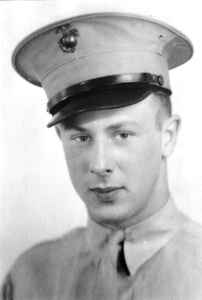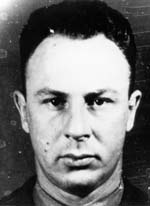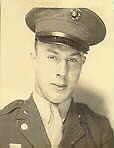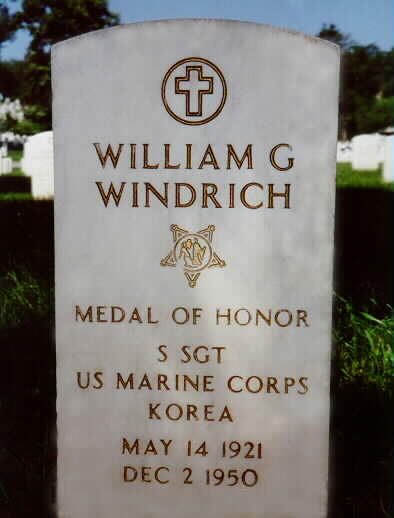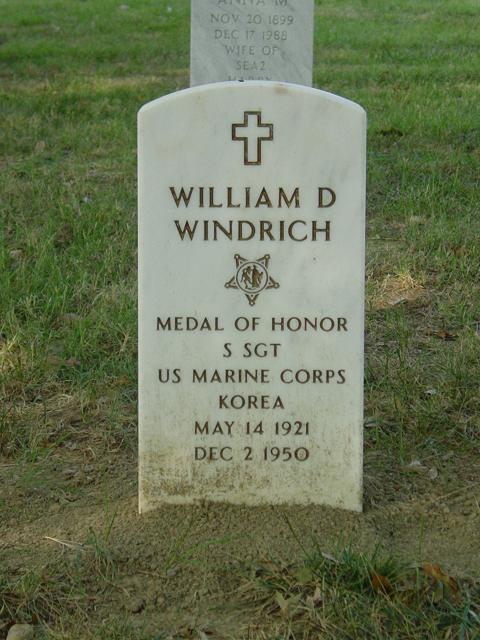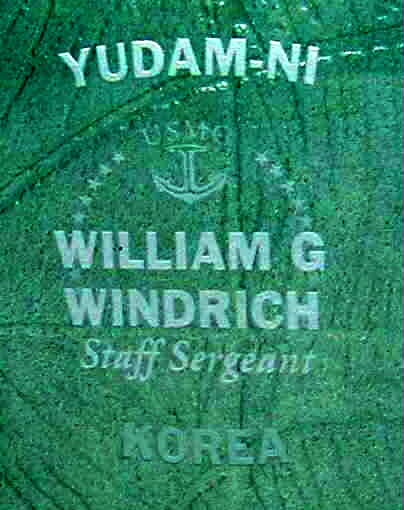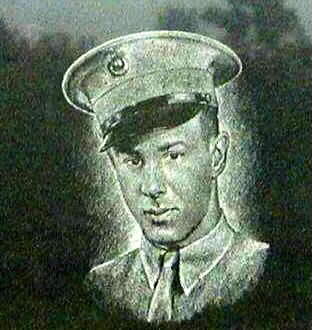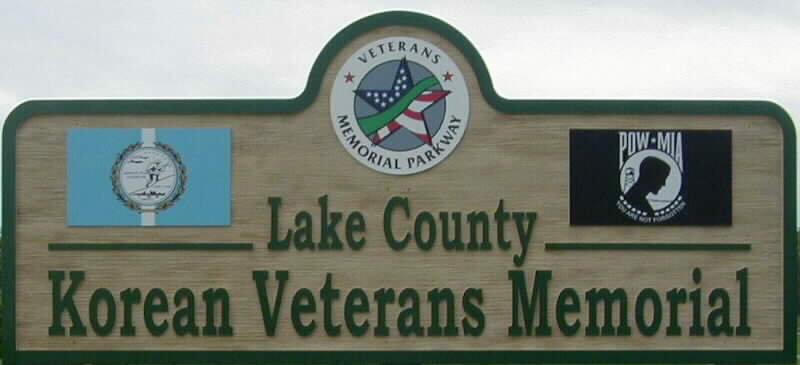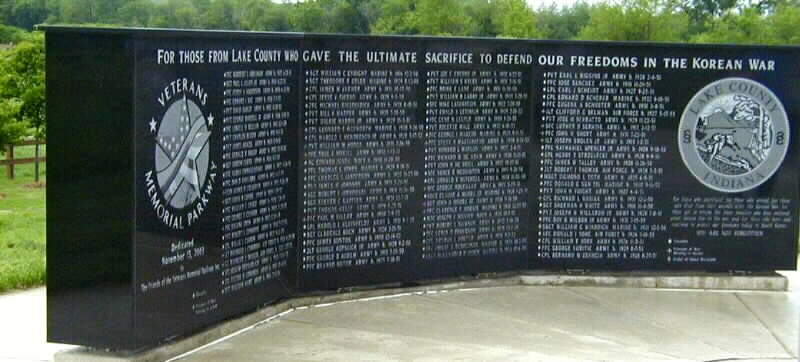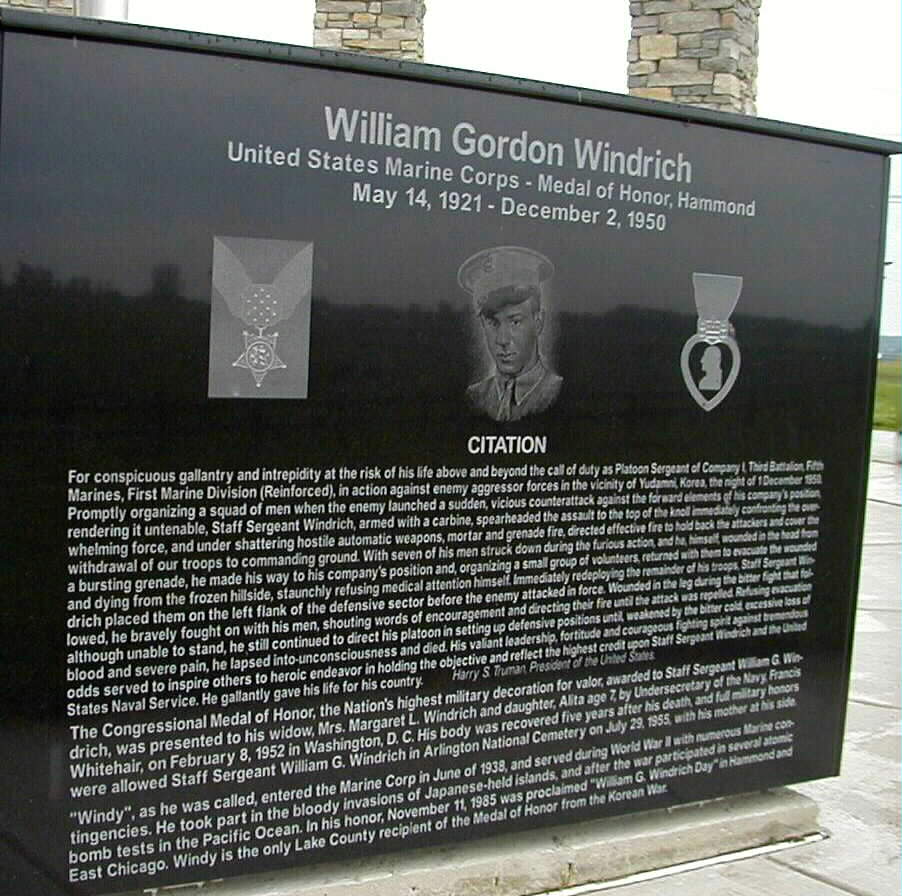Marine Staff Sergeant William Gordon Windrich was posthumously awarded the Medal of Honor by President Harry S. Truman for his heroic actions as an infantry platoon sergeant of Company I, Third Battalion, Fifth Marines, First Marine Division (Reinforced) during the Korean War 1950-1953. He was killed in action on 2 December 1950 in Northeast Korea, following a savage night battle with Chinese troops across the 38th Parallel.
The Congressional Medal of Honor, the Nation’s highest military decoration for valor, awarded to Staff Sergeant William G. Windrich, was presented to his widow, Mrs. Margaret L. Windrich and daughter, Alita age 7, by Undersecretary of the Navy, Francis Whitehair on February 8, 1952 in Washington, D. C. His mother, Mrs. Marguerite E. Windrich and sister, Mrs. Virginia R. (Windrich) Grant also attended the presentation ceremony.
William G. Windrich was born May 14, 1921 in Chicago, Illinois, the son of Herman and Marguerite Windrich. Bill attended Hammond, Indiana public schools until enlisting in the U.S. Marine Corps 6 June 1938.
Known in the military as “Windy”, Staff Sergeant Windrich was a one hundred percent dedicated marine. He was strong and muscular, a real tough dude! Windy cared for his fellow Marines that were in his charge. He would joke with his troops, but when he gave an order and looked at them with his piercing eyes, they knew they had best pay attention, but at all times being fair. Windrich was held in high esteem.
Late in the afternoon of 1 December 1950, because his company was surrounded by enemy aggressors at Yudam-ni, they were ordered to move toward Hagaru-ri. By the time they reached Hill 1520 (Hill number shows elevation in meters), three miles southeast of Yudam-ni, it was very dark and the temperature averaged a minus 40 degrees. The company relocated a few times, then back to the knoll, between two rugged mile high mountains where they were bombarded by grenades, machine gun and rifle fire. Staff Sergeant Windrich led a rifle squad of twelve men to meet the enemy head on, while armed with a M-2 carbine. Seven of his men were wounded or killed before they reached the forward position they were to defend. Windrich was also wounded in the head by a bursting grenade. As blood gushed down his shoulder and back he moved his remaining men into a tight fire group. Then he ran to the company command post, drafting a small group of volunteers, and led them to evacuate the dying and wounded. Assuming command of what was left of a platoon, Windrich once more took up defensive positions. Now he was shot in both legs, but kept fighting, always refusing medical attention. For a long time he crawled in the snow, back and forth between his men shouting words of encouragement, deploying his forces and helping to throw back the attackers. It was only after the communist had been beaten off did Staff Sergeant Windrich collapse and die due to the bitter cold, excessive loss of blood and severe pain. In the end there were two officers and eighteen enlisted men alive, who staggered down the mountain to be with the rest of the column headed toward Hagaru-ri. Windrich was not there! They could not take his body down seventy miles of treacherous mountain terrain.
Word spread fast of a marine Staff Sergeant, a one man Army so to speak, who had been on Hill 1520. He did not care where the enemy was coming from, as he cussed, blowing them away before they could kill him. Many marines talked about Windrich’s heroics, as well as some of the prisoners being interrogated. Because of Windy and others like him, who gave the supreme sacrifice, the Chinese did not fulfill their orders to annihilate the entire First Marine Division.
Almost five years later he was recovered by Communist Forces and transferred to the United Nations Forces under Operation “Glory”. On the Passenger List No. 9, Evacuation N-14978 all were “Unknown”. Windrich was the only casualty positively identified at Kokura, Japan through comparison of physical and dental characteristics. A military funeral service was conducted by Navy Chaplain H. C. Wood at Fort Myer Chapel in Virginia, where two women marines sang “Beautiful Isle of Somewhere” and the Marine Hymn. An eight gun volley, eight pallbearers and full military honors where allowed Staff Sergeant William G. Windrich in Arlington National Cemetery on 29 July 1955, with his mother at his side. Now he lays at rest in Section 31, Grave 4858.
Lieutenant Colonel Robert D. Taplett recommended Staff Sergeant William Gordon Windrich for the Medal of Honor after receiving a written report from the company officer. Second Lieutenant Willard S. Peterson’s report was certified a true copy by H. C. Pryor, Jr., along with written witness statements from machine gun Staff Sergeant Charles W. Pearson and infantry Corporal Mason R. Carlson.
Bill in his youth was all boy. He loved doing stunts on the family pony, Dolly, always leaving his sister in the dust. For the most part Windrich was self-taught and did everything well. He built a crystal radio, liked the hobby of taxidermy, enjoyed all sports, adored poetry and photography, plus hand painted his prints. The only thing Bill did not excel in was school, and eventually became a truant thanks to his mother’s eccentricities. Her unconventional manner bred a temper in him that matured into rage. Each time he was ready to detonate, his father, whom Bill idolized, would intervene saying, “Remember, she’s your mother.”
During WWII Windy was a machine gunner for 28 months in the Southwest Pacific. He was attached to Headquarters, 5th Defense Battalion from 2 October 1942 to 10 October 1943 during the Japanese bombing raids on Funanfuti Atoll, Ellice Islands. During the bloody invasion of Tarawa Atoll, Gilbert Islands Windrich was stationed there from 21 November 1943 to 1 April 1944 serving with Headquarters, 2nd Marine Battalion, AAARTY Group, and 5th Amphibious Corps, 2nd Marine Division during the enemy bombings.
From 1 May to 26 August 1946, Sergeant Windrich participated in operation “Crossroads”, the atomic bomb tests ‘Able’ and ‘Baker’ at Bikini Atoll, Marshall Islands, while attached to the Joint Task Force One aboard the USS Mt. McKinley. The men had a great liberty on Bikini beach before boarding the ship for the tests.
Twenty seven months of his military career Windy spent in the Central Pacific and Orient, from November 1946 to February 1949. A part of the marine garrison in China, as a military policeman, he went to Peiping, Tientsin, Tsingtao and Shanghai. During September 1947 to 30 April 1948, Windrich was stationed in Guam, M.I., minus his Christmas leave to the enchanting Hawaii Islands of Oahu in Honolulu. He departed Tsingtao, China 27 January 1949 while attached to the First Marine Division, Fleet Marine Force, FMF WestPac for San Diego, California.
At the breakout of the Korean Conflict Staff Sergeant Windrich was attached to the First Provisional Marine Brigade serving as a military policeman. They were the first group of marines sent to the Pusan Perimeter, arriving 3 August 1950. After the Brigade mission was completed they were ordered to join the First Marine Division for the amphibious seizure of Inchon 15 September 1950. After that they rendered invaluable assistance in the capture of Seoul.
Staff Sergeant William Gordon Windrich transferred to Item Company, Third Battalion, Fifth Marines during the Wonsan Hungnam Chosin Campaign, North Korea on 2 November 1950. He gallantly gave his life for our country exactly one month from joining Item Company.
Veterans Day, November 11, 1985 was proclaimed William G. Windrich Day by the cities of Hammond and East Chicago, Indiana. That night American Legion posts #369 and #168 presented a memorable ceremony in honor of Staff Sergeant Windrich. Dozens of dignitaries and hundreds of guest packed the Legion hall for the ceremony. Included were the mayor of three cities, representatives of Indiana’s senators and congressmen and Congressman Peter Visclosky. Major General C. “Dean” Sangalis, U. S. M. C. R. was designated to be present by the Commandant of the United States Marine Corps, General Paul X. Kelley, as his representative and guest speaker. Windrich’s daughter Alita, grandson Mark, Alita’s step-father Major John A. Goehring, U.S.M.C. (Retired.), Windrich’s sister Virginia and her husband Ted, as well as three veterans who had served with Windy back in 1940 were in attendance. October 29, 1994 a street and park were named for Staff Sergeant Windrich at the Hammond Civic Center location in Hammond, Indiana. This was made possible by the Windrich Chapter III (IN) of the Korean War Veterans Association. The dedication took place on June 25, 1995.
William Windrich is survived by his daughter Alita M. (Bonnie) Windrich Monahan, sister Virginia R. (Windrich) Swan and grandson Mark S. Monahan.
— Bonnie “Windrich” Monahan
(Thank You, Bonnie! What more could anyone possibly add.)
“Our Souls Cry Out”
Our souls cry out when they say,”gone but not forgotten,”
Because we are forgotten by so many.
You accept the good life,
All without a thought, claiming it is your right.
The right to live and do as you will.
A special life, ah, ’tis that indeed.
A piece of metal forged into a design,
Tied with a ribbon, to wear on our chests,
Or sent home to our families was our reward.
We were grateful.
Tiny crosses dot the earth around the world.
Many stand in foreign soil,
Never to be seen by our families,
Some here at home in sacred ground.
Perhaps you think them pretty in their symmetrical rows,
Not one individually stands out.
Nay, they are more,
These emblems insure you the right to be individuals in all things.
Even to ignore our reasons for dying.
Take heed of us and the histories of the past.
Remember our country, our peoples and why we lived and died.
YOU—are the nation, make it great again, become proud.
Remember us so our souls no longer feel the need to cry out.
Written by Virginia R. Swan (Windrich) — Memorial Day 1998
WINDRICH, WILLIAM G.
Rank and organization: Staff Sergeant, U.S. Marine Corps, Company I, 3d Battalion, 5th Marines, 1st Marine Division (Rein.). Place and date: Vicinity of Yudam-ni, Korea, 1 December 1950. Entered service at: Hammond, Indiana. Born: 14 May 1921, Chicago, Illinopis.
Citation:
For conspicuous gallantry and intrepidity at the risk of his life above and beyond the call of duty as a platoon sergeant of Company I, in action against enemy aggressor forces the night of 1 December 1950. Promptly organizing a squad of men when the enemy launched a sudden, vicious counterattack against the forward elements of his company’s position, rendering it untenable, S/Sgt. Windrich, armed with a carbine, spearheaded the assault to the top of the knoll immediately confronting the overwhelming forces and, under shattering hostile automatic-weapons, mortar, and grenade fire, directed effective fire to hold back the attackers and cover the withdrawal of our troops to commanding ground. With 7 of his men struck down during the furious action and himself wounded in the head by a bursting grenade, he made his way to his company’s position and, organizing a small group of volunteers, returned with them to evacuate the wounded and dying from the frozen hillside, staunchly refusing medical attention himself. Immediately redeploying the remainder of his troops, S/Sgt. Windrich placed them on the left flank of the defensive sector before the enemy again attacked in force. Wounded in the leg during the bitter fight that followed, he bravely fought on with his men, shouting words of encouragement and directing their fire until the attack was repelled. Refusing evacuation although unable to stand, he still continued to direct his platoon in setting up defensive positions until weakened by the bitter cold, excessive loss of blood, and severe pain, he lapsed into unconsciousness and died. His valiant leadership, fortitude, and courageous fighting spirit against tremendous odds served to inspire others to heroic endeavor in holding the objective and reflect the highest credit upon S/Sgt. Windrich and the U.S. Naval Service. He gallantly gave his life for his country.
Michael Robert Patterson was born in Arlington and is the son of a former officer of the US Army. So it was no wonder that sooner or later his interests drew him to American history and especially to American military history. Many of his articles can be found on renowned portals like the New York Times, Washingtonpost or Wikipedia.
Reviewed by: Michael Howard

